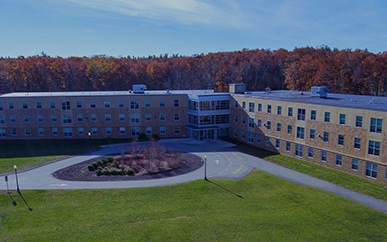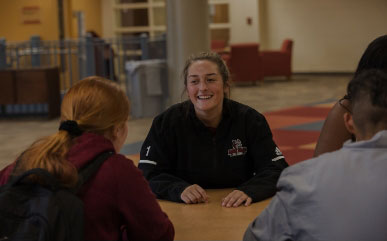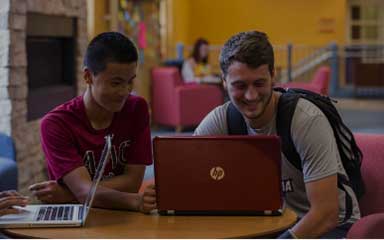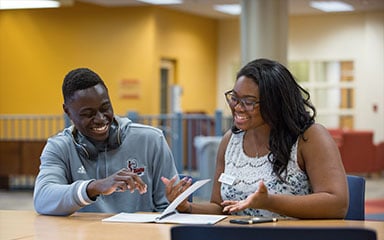The Sister Doris Gagnon General Education Program
Explorers in a Community of Faith and Reason
When they founded Anna Maria College in 1946, the Sisters of Saint Anne perpetuated the vision and aim of their own foundress, Blessed Marie-Anne Blondin, by offering the opportunities and advantages of education—in this case higher education—to those for whom it was then not easily accessible: women. The earliest statement of their purpose declares that the “College offers a liberal education planned: to elevate the heart through love; to enlighten the intellect in truth; to strengthen the will in good.” In this declaration is summed up the entire Catholic tradition in education.
Anna Maria College recognizes that intellectual development is inseparable from character development and ethical decision making and seeks to prepare students to be citizens of a global community with a goal of constructing a more just and peaceful world. The General Education curriculum is mission consistent, provides a developmental four-year sequence, and is defined as both the foundation and framework of undergraduate education at Anna Maria College. Emphasis is placed on interdisciplinary approaches to knowledge and skills while integrating the Catholic identity of the institution throughout the curriculum.
The General Education requirements, together with major requirements at Anna Maria College embody the mission of the College, as a Catholic institution inspired by the ideals of the Sisters of Saint Anne, Anna Maria College educates students to become individuals who will transform their world as ethical leaders and community-oriented professionals. Learning goals for the General Education are directly derived from this mission and are identified through a framework of knowledge, skills, and responsibilities focused on contemporary literacies to include:
Knowledge of Human Cultures and the Physical and Natural World Through the Liberal Arts
Focused by engagement with big questions, both contemporary and enduring
Contemporary Literacies
- Humanities Literacy
- Integrated Social Scientific Literacy (Behavioral & Social Sciences)
- Scientific Literacy
- Artistic Literacy
Intellectual and Applied Skills
Practiced extensively, across the curriculum, in the context of progressively more challenging problems, projects, and standards for performance and demonstrated through the application of knowledge, skills, and responsibilities to new settings and complex problems
Contemporary Literacies
- Critical Thinking Literacy
- Communication Literacy
- Professional Literacy
- Information and Research Literacy
Personal and Social Responsibility
Anchored through active involvement with diverse communities and real-world challenges
Contemporary Literacies
- Personal Literacy
- National and Global Literacy
- Moral Literacy
- Critical Literacy








